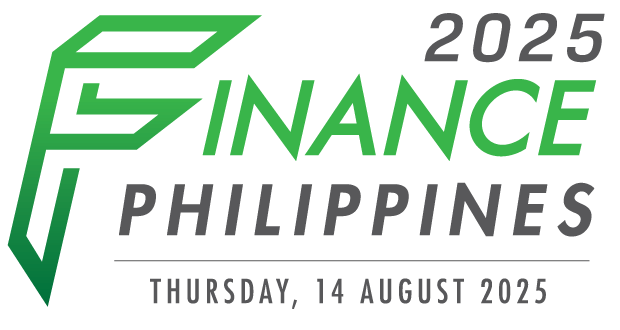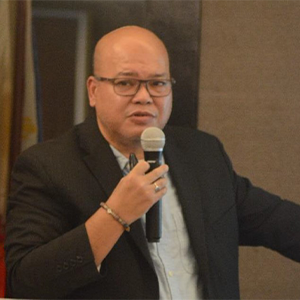Finance Philippines 2025| Agenda
Thursday, 14 August 2025 | Manila, Philippines
Finance Philippines 2024 | Agenda
Thursday, 26 September | Bangkok, Thailand
Registration and morning networking
Opening keynote session
Opening Remarks
Keynote Speeches
Leadership dialogue:
Shaping the future of banking through digital innovation, sustainability, and inclusion
This discussion will focus on how banks are adapting to the challenges of the digital age by embracing innovation, sustainability, and inclusion. The aim is to explore the practical steps to implement new technologies, promote sustainable practices, and ensure broader access to financial services.
- Integrating AI, blockchain, and automation to enhance services and reduce costs
- Meeting ESG targets and supporting sustainability through products
- Expanding financial inclusion by leveraging mobile banking, digital wallets, and embedded finance models.
- Navigating regulatory changes, particularly around digital currencies, open banking and cross-border payments
Tea / Coffee Break
Panel discussion:
How Gen AI and big data will shape the future of financial ecosystems
This topic explores how generative AI and big data are transforming the financial sector, enabling hyper-personalised services, enhancing customer experiences, driving real-time decision-making, and optimising risk assessments through AI-powered tools such as chatbots and virtual assistants.
- How do data analytics and generative artificial intelligence enable hyper-personalised financial services?
- In what ways can chatbots and virtual assistants improve customer engagement?
- What are the risks and compliance considerations of using AI-powered tools?
- How will Gen AI and big data continue to shape financial ecosystems?
Panel discussion:
Cloud architectures for scalability, security, and data integrity in finance
This session will examine how cloud architectures support scalability, security, and data integrity in the finance sector. It will focus on practical cloud solutions, key security measures, and methods for maintaining data accuracy and consistency.
- Implementation of cloud-native technologies and microservices in banking systems.
- Hybrid cloud models for balancing scalability and security
- Data encryption, tokenisation, and secure APIs in cloud environments
- Best practices for managing data integrity and consistency in distributed cloud system
Panel discussion:
DeFi platforms and their impact on traditional banking
This session examines the rise of Decentralised Finance (DeFi) platforms and their potential to challenge traditional banking models, offering alternative financial solutions outside of conventional banking systems.
- Decentralised protocols vs centralised banking systems
- How do smart contracts enable financial automation?
- What role do liquidity pools and yield farming play?
- What are the key regulatory and security challenges in DeFi?
Presentation on:
Cross-Border cooperation in combatting financial cybercrime
This session explores the importance of cross-border collaboration in addressing financial cybercrime, focusing on international efforts to detect, prevent, and respond to cyber threats targeting financial systems.
- Interoperable regulations enabling cross-border cybercrime enforcement and legal cooperation
- Decentralised encryption for secure, real-time cross-border cyber threat detection
- AI-driven defenses mitigating vulnerabilities with anomaly detection and zero-trust
Networking Luncheon
Panel discussion:
The role of API technology in modernising banking for SMEs
This session will explore how open banking API is reshaping the Philippine financial sector through seamless integration with third-party providers. It will focus on how this model enhances service delivery, drives innovation, and supports financial inclusion.
- Overcoming legacy system limitations through API-first strategies
- Security measures including encryption, tokenisation, and multi-factor authentication
- What are the compliance challenges in open banking integration?
- Real-world applications in account aggregation, credit scoring, and financial inclusion
Panel discussion:
How stablecoins and CBDCs are shaping the future of payments
This session examines how digital currencies and central bank digital currencies (CBDCs) are influencing the future of payment systems in the Philippines, highlighting their potential to enhance transaction efficiency, financial inclusion, and regulatory frameworks.
- How do stable digital tokens and decentralised currencies differ in transaction execution and settlement?
- What are the operational efficiencies digital currencies provide in payment processing and cost reduction?
- What legal and infrastructure challenges must the Philippines overcome for digital currency integration into existing financial systems?
Tea/Coffee Break
Panel discussion:
Carbon credit financing and its integration into digital banking services
This session explores how banks offer carbon credit-linked loans, green bonds, and ESG investment accounts, enabling businesses to offset emissions and comply with the Philippine sustainable finance roadmap. Digital platforms streamline carbon credit verification, transactions, and portfolio tracking, while AI-powered analytics assess carbon footprints to guide financing decisions and integrate sustainability into credit risk assessment.
- How banks structure microfinance products to support sustainable businesses
- How machine learning improves risk assessment without formal credit histories
- How decentralised ledgers enhance trust and reduce fraud in rural lending
- How digital platforms improve financial accessibility for underserved communities
Closing keynote:
The future of banking: Is Agentic AI the next growth frontier?
This session will dive deeper into how this technology can drive significant advancements in efficiency, decision-making, and customer interaction. By enabling autonomous processes and real-time learning, Agentic AI has the potential to reshape the competitive landscape.
- The impact on operational processes and cost reduction
- How AI-driven autonomy is changing customer interactions
- Real-world applications in decision-making
- Challenges and strategies for agentic AI integration into banking systems
End of programme
*This is a working agenda and topics and guests are subject to change.
Agenda & Speaking Opportunities :
- Arlene Anonuevo
- aanonuevo@tab.global
- +63 956 670 7433
Exhibition & Sponsorship Opportunities:
- Grace Zhi
- gzhi@tab.global
- +65 8874 3111
Delegate Registration:
- Joshua Sangalang
- jsangalang@tab.global
- +63 905 025 3810






















